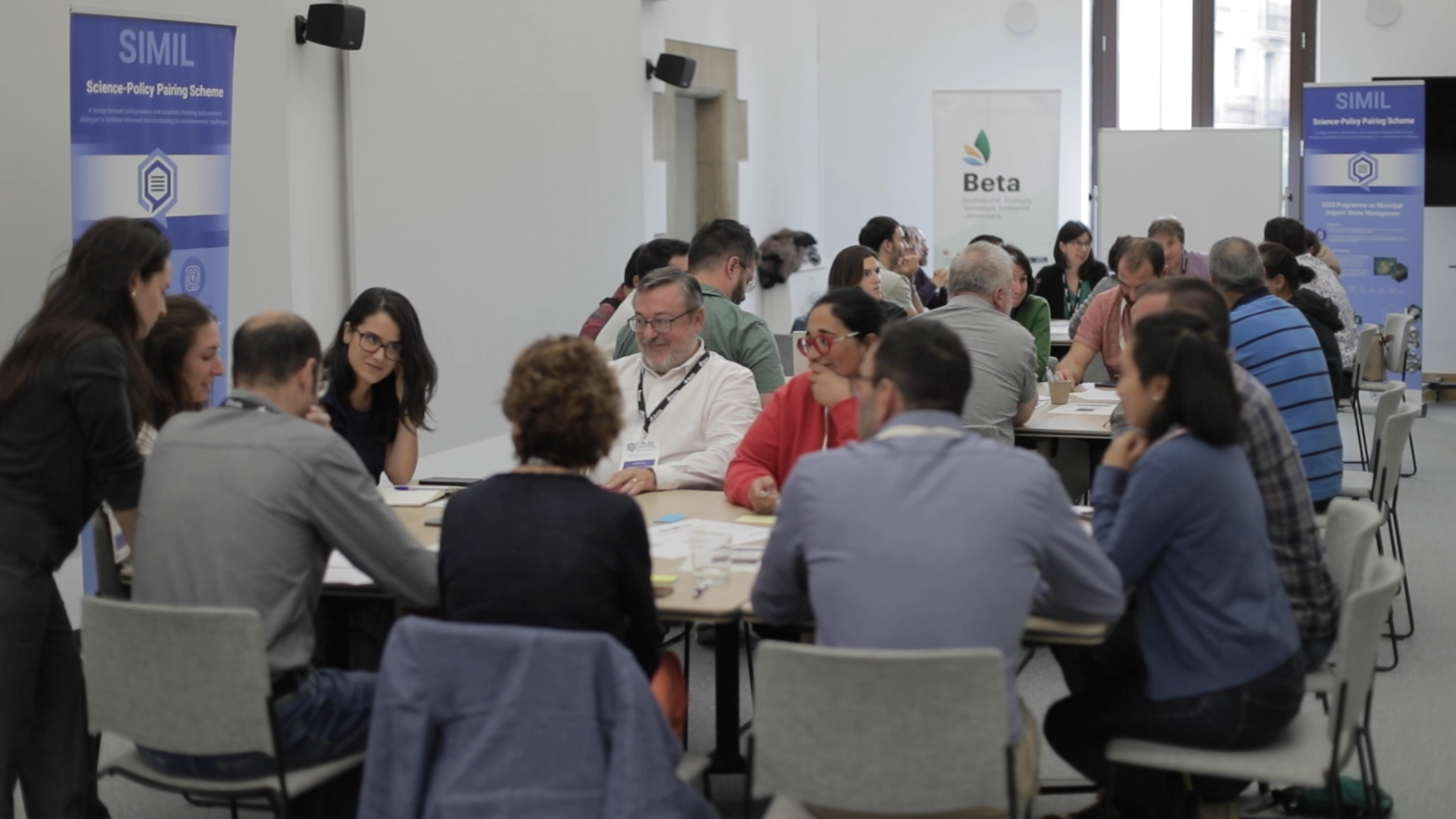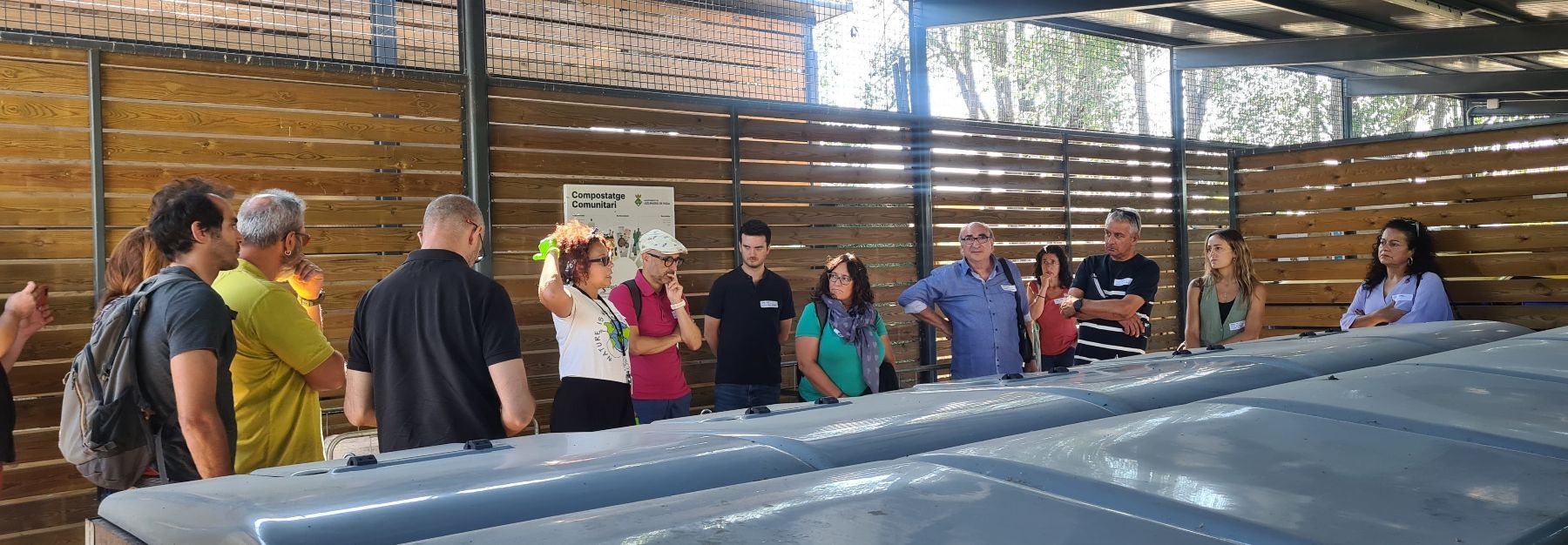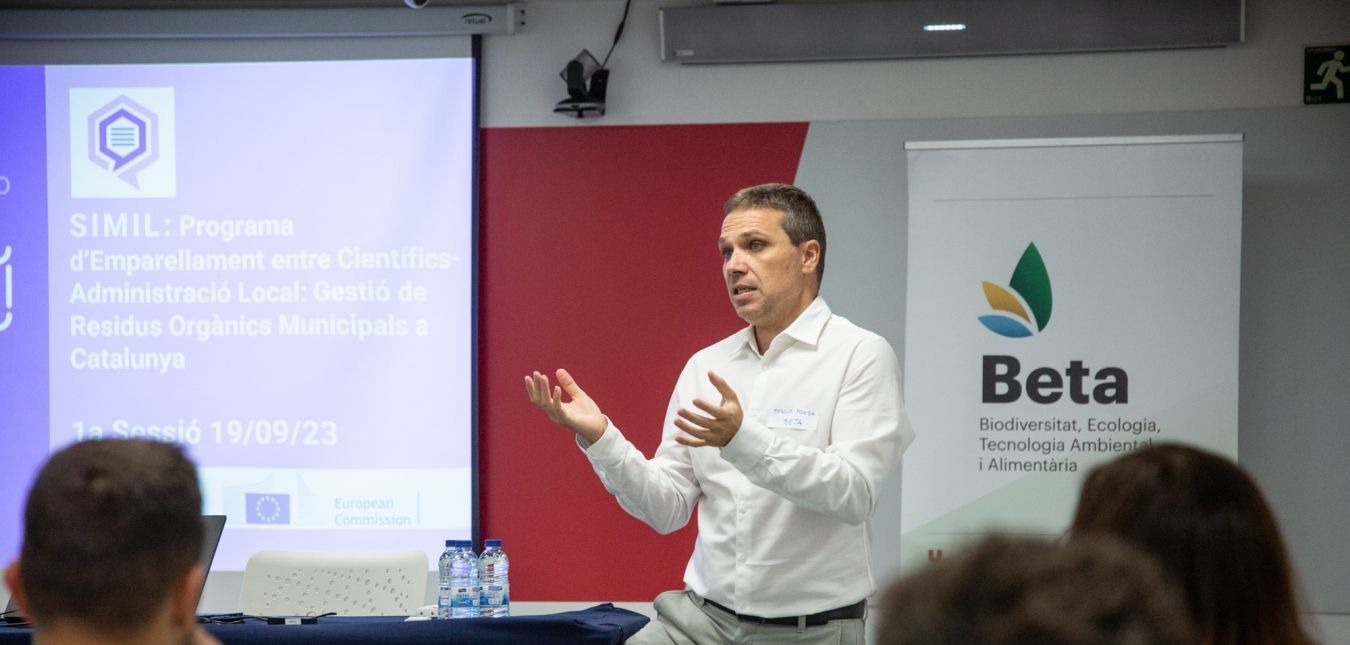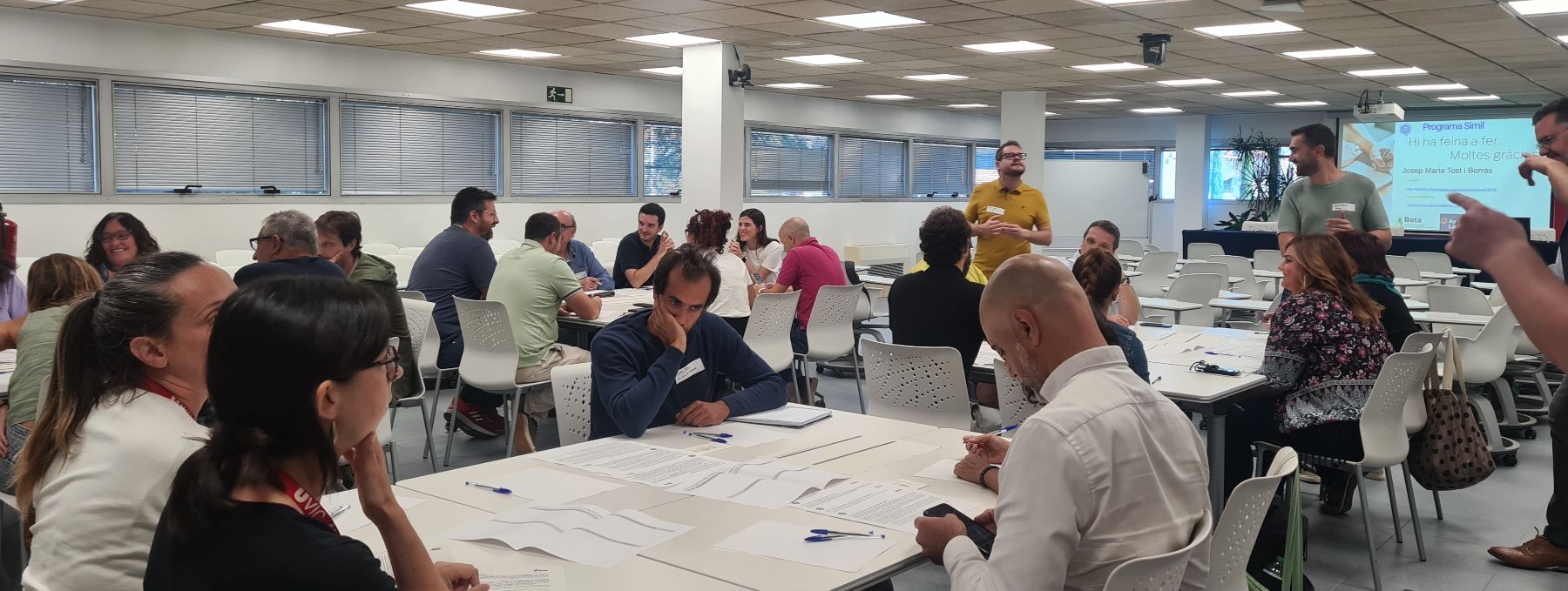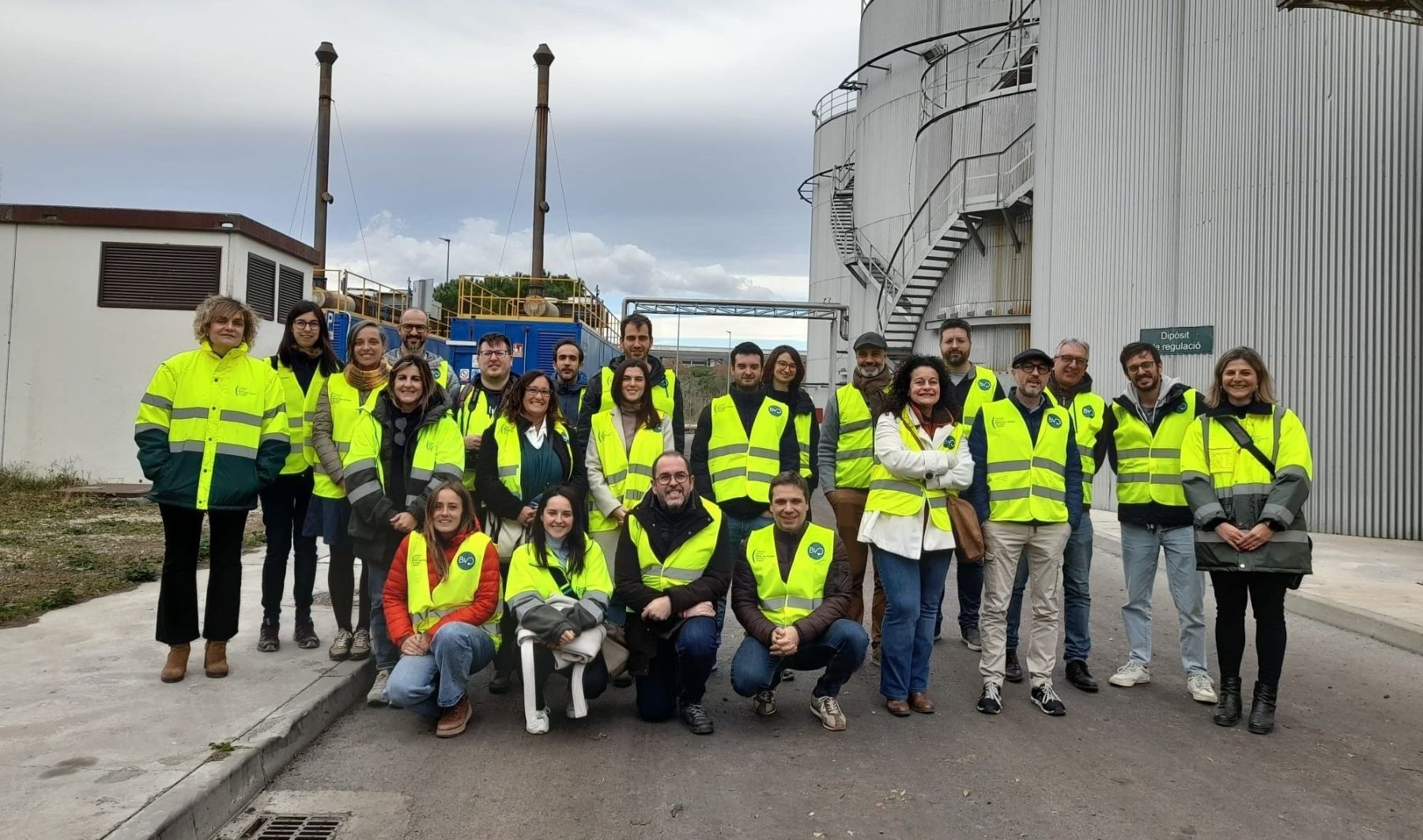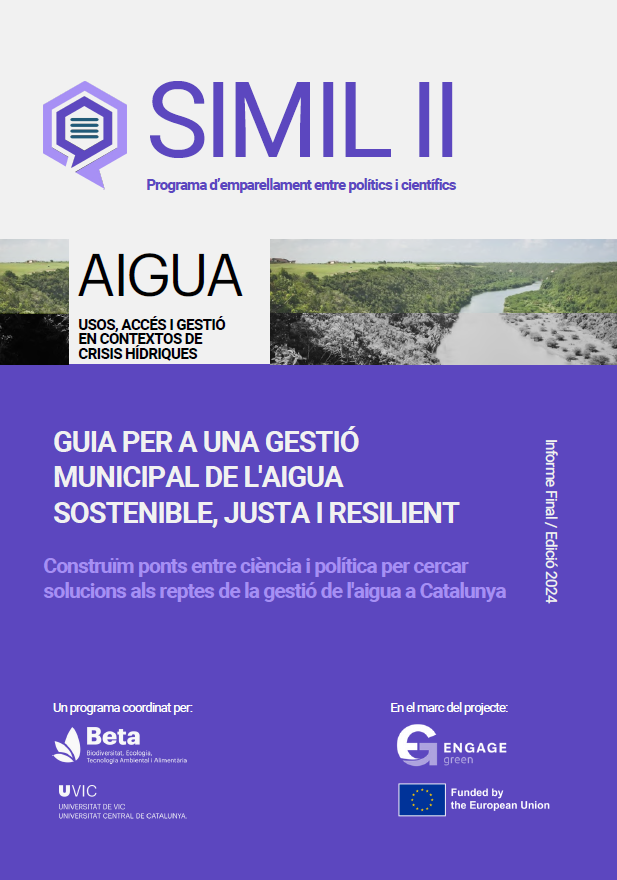.
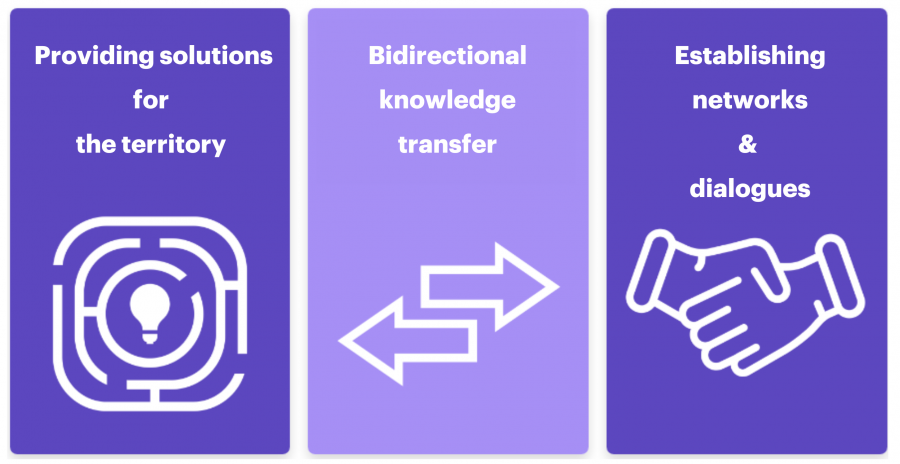
The SIMIL programme, which pairs scientists with political representatives, is designed to provide independent scientific support for the development of public policies at the local and regional levels.
Through a bidirectional dialogue, this programme seeks to share tools, knowledge, and practical examples of ongoing initiatives to find solutions based on evidence and scientific knowledge to the specific problems and challenges of the territory. In turn, researchers will have the opportunity to engage with the political reality of their environment and identify needs toward which to direct their research work.
Each participant will receive a tailor-made and completely free programme based on direct contact with researchers, aimed at solving the challenges and issues identified in the territory. From the BETA Technology Center, we will carry out the pairings, assigning researchers to each profile and developing a plan to address the challenges and offer innovative solutions and scientific advice.
The SIMIL programme, which pairs science with public policy, will consist of:
(i) In-person sessions with researchers to pose challenges in the territory, exchange knowledge, and resolve doubts;
(ii) Several work sessions, both in-person and virtual, to jointly create solutions tailored to the needs of each group of professionals;
(iii) In-person visits to learn about experiences and initiatives successfully implemented in the field addressed by the current edition of the SIMIL programme. There will also be a visit to the BETA research center.
(iv) Continuous monitoring and direct communication between researcher and scientist;
(v) A final event where conclusions will be presented, and a technical report will be delivered to aid decision-making.
Participants will also be invited to other events, workshops, and meetings held at the BETA Technology Center that may be of interest for the challenges posed by the participant. Additionally, proposals for new science-public policy links will be made to participants with other research centers with which the BETA Technology Center is working, fostering the creation of lasting exchange networks.
We are currently in the initial phase of our second edition of the SIMIL programme. After working with various actors and participants from the first edition, we are now opening the application phase. Interested political actors can register, and scientific-political pairings will be made. With this, we will launch SIMIL II, WATER: Uses, access, and management in contexts of water crisis, which will run until the early months of 2025.
Can't imagine how? Take a look at our first edition and see concrete examples of actions carried out by public administration and generated from this connection between the political and academic worlds.
This scientific advisory programme is free of charge for participants.
We address professionals in public administrations: political representatives, environmental technicians, and political advisors in Catalonia (1). Also, those involved in decision-making within public administration. The profile of the participants ranges from municipal technicians and professionals to local councilors and political leaders.
Anyone linked to politics and public administration can participate in the programme. The number of participants is limited to 24 places to offer individualized support.
We will be responsible for building the bridge between participants and scientists and academics, primarily from the BETA Technology Center.
In addition to the regional level (1), the new editions will incorporate two levels: the state (2) and the transnational (3).
After the first edition of the programme, we are expanding our reach to different areas of the Iberian Peninsula and the Mediterranean region (2). We will have public policy leaders from specific places who can share knowledge and learning with participants from the Catalan region. If this is your case and you are interested, contact us to participate.
The SIMIL programme is also being articulated transnationally, so within the framework of the ENGAGEgreen project, we will seek to generate science-public policy links at the European level.
Our experience has allowed us to work on improving science-policy pairing schemes. The second edition of the SIMIL programme will include the following approaches:
- Territory.
- Comprehensive view.
- Co-produced.
- Transmitters.
- Stakeholder involvement.
Access more detailed information about these updates in our SIMIL II programme.





